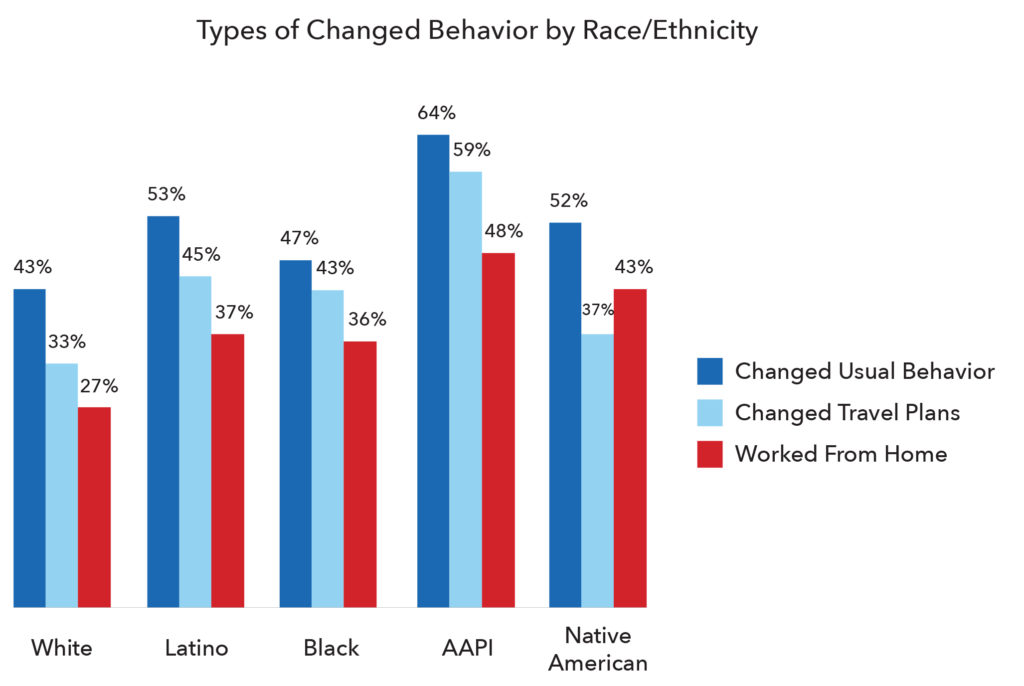As reflected in the figure below, racial and ethnic minorities were more likely than whites to have shifted their behavior across all three measures. For example, the Asian American and Pacific Islander (AAPI) community was nearly twice as likely to report that they made travel plans to help reduce the spread of the virus (59% compared to 33%), with Latino and African respondents also being more likely than whites to have followed this important suggestion from public health leaders at the time. The difference between each of these racial groups is statistically significant, and although not significant, Native Americans were also more likely to have revised their travel plans.
Read more at Contexts: Sociology for the Public.
Multi-wave National Panel Study of COVID19 (n=4000)
Gabriel R. Sanchez is a Professor of Political Science at the University of New Mexico. He is the Executive Director of the Robert Wood Johnson Foundation Center for Health Policy and Co-Director of the Institute of Policy, Evaluation and Applied Research (IPEAR) at the University of New Mexico. Dr. Sanchez is also Co-PI, Transdisciplin
Melanie Sayuri Dominguez is a Doctoral Candidate in Political Science at the University of New Mexico and a Doctoral Fellow for the University of New Mexico’s Center for Social Policy.
Edward D. Vargas is an Assistant Professor of Transborder Studies at Arizona State University.



